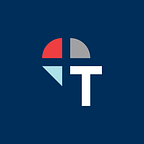Employers, prepare now for changes to Earned Wage Access
“If you are an HR leader who offers Earned Wage Access (or is considering offering EWA) and you aren’t operating under the assumption that your employees will need a product where there are zero fees, you need to get prepared…like now,” says fintech entrepreneur Jason Lee.
“If you are an HR leader who offers Earned Wage Access (or is considering offering EWA) and you aren’t operating under the assumption that your employees will need a product where there are zero fees, you need to get prepared…like now,” says Jason Lee.
Lee is founder and former CEO of DailyPay and now the chief of Chime Enterprise, a unit of San Francisco-based neobank Chime.
“Lee cares about the topic because he was a pioneer in the EWA arena, and because he’s now working on the financial services that Chime enables employers to provide to workers,” writes Lynne Marek, Lead Editor, Payments Dive, in a Q&A.
In other words, Lee sounds like someone with perspective and expertise worth listening to.
What’s Earned Wage Access?
Earned Wage Access enables workers to access a portion of their paychecks before payday.
EWA services gained popularity during the COVID-19 pandemic and subsequent period of high inflation, according to the Federal Reserve Bank of Kansas City.
They fall into two primary types, employer-sponsored (also called employer-integrated) and direct-to-consumer.
In employer-sponsored EWA services, the employer partners with an EWA service provider to deliver proceeds from wages earned to an employee prior to the scheduled payday.
The employee’s earnings and the amount available to be accessed early (for example, 50 percent of earned wages) are calculated based on the employer’s payroll data.
The employee’s subsequent paycheck is then reduced by the corresponding amount.
Employer-partnered EWA providers sent over 83 million payments to employees in 2022, according to CFPB, with more than 90% of workers paying at least one fee.
What changes are coming to Earned Wage Access?
In July, the Consumer Financial Protection Bureau proposed a historic interpretive rule which has the potential to upend the EWA market.
And with it, whatever EWA offering you’re making available to your workers.
The CFPB’s proposal marks the first time the agency has said “explicitly” that early paycheck access amounts to a loan, Mitria Spotser, vice president and federal policy director at the Center for Responsible Lending, tells CNBC.
Under the proposed rule, Earned-Wage-Access products would be subject to the Truth in Lending Act, which requires disclosure upfront of all fees.
Workers would see Earned-Wage-Access fees expressed as an APR, like credit-card interest rates.
Is Earned Wage Access hurting your workers?
There’s a scenario where Earned Wage Access is harming your workers and your organization, as counterintuitive as it sounds.
The typical Earned-Wage-Access user pays fees that amount to a 109.5% APR, per CFPB.
The California Department of Financial Protection and Innovation finds such fees to be more than 330% for the average user.
Meanwhile, the Center for Responsible Lending says, the average APR for a repaid payroll advance in 7 to 14 days is 367%, almost the same as a typical payday loan APR (400%).
How’s that for number salad?
The point is Earned-Wage-Access costs for your workers can add up, big time, regardless of what we call the products, regulatorily speaking.
Is Earned Wage Access a loan?
It’s inaccurate to call Earned Wage Access a loan or an advance since it grants workers access to money they’ve already earned, says Phil Goldfeder, CEO of the American Fintech Council, a trade group representing earned-wage-access providers, per CNBC.
“I would resemble it closer to utilizing an ATM machine and getting charged a fee…You can’t utilize a methodology like APR to determine the appropriate costs for a product like this.”
The CFPB rule doesn’t prohibit providers from charging fees, the Center for Responsible Lending’s Spotser tells CNBC:
“It merely requires them to disclose it…You have to ask yourself, why is the industry so afraid to disclose that they’re charging these fees?”
The CFPB is soliciting comments from the public until Aug. 30.
Whether CFPB revises its proposed Earned-Wage-Access rule or not, as Spencer Hulse puts it in Financial Tech Times:
“…it’s clear that we’re heading in the direction of zero-fee EWA in the not-too-distant future.”
Is your financial wellness offering ready to adapt?
Smart employers don’t want to be caught off guard, says Chime’s Jason Lee to Banking Dive’s Lynne Marek:
“Any serious company doesn’t want to wake up and say, ‘Wait, in three months, I have to transition my entire program. Like, how do I do that?’”
So, the time to prepare is now.
Schedule a time to speak with TrustPlus about strengthening my financial wellness benefits.
